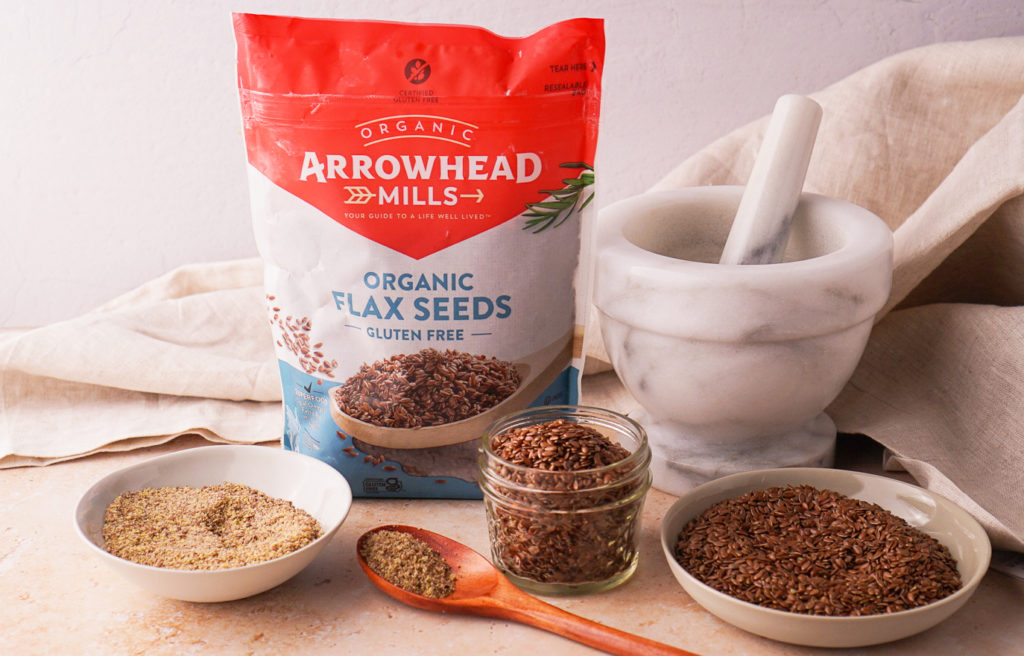What is a “Flax Egg”? And How to Make It
Whether you’ve seen it in a recipe or noticed instructions on the back of your flax seed package, flax eggs have become more popular in recent years. Eggs are a common ingredient in baked goods. They provide structure and leavening to your cookies, pancakes, quick breads, and more. For those who follow a vegan diet and choose not to eat eggs, flax eggs are a great alternative that maintain the integrity of baked goods while eliminating an animal-based ingredient.

How to make a flax egg
In order to make a flax egg, you’ll need to turn your whole seeds into a milled form. You can easily do this by adding whole flax seeds to a blender and blend for a few minutes until you have a finely ground form. From here, you can combine 1 tablespoon of ground flax seed with 2 1/2 tablespoons of water, stir, and rest for about 5 minutes. This allows the flax egg to thicken. Once you have a thickened product, this recipe can replace one egg in your baked good recipe. You can also double or triple this recipe to replace two or three eggs. However, this swap is not an exact 1 to 1 as flax doesn’t possess the same binding abilities as eggs. Because of this, flax eggs are best used in dense baked goods, like cookies, pancakes, waffles, brownies, and quick breads.
Nutrient boost
Replacing an egg with a flax egg can make baked goods suitable for those following a vegan diet, and it also adds valuable nutrients to your goodies. Flax seed contains essential Omega-3 fats, fiber, protein, calcium, and iron which are nutrients not commonly found in notable amounts in pastries. While the flax egg doesn’t automatically turn a chocolate chip cookie into a “healthy” food, it does make it more nutrient-rich. So, flax eggs aren’t just for those who avoid animal-based food items. Rather, anyone interested in adding essential nutrients into their next batch of banana bread can swap out one or all of the eggs in their recipe for nutrient packed flax egg.
Other egg substitutes
Looking to swap out eggs in other ways? Try these four different substitutes for eggs in baking.
 VIEW ALL PRODUCTS
VIEW ALL PRODUCTS 
